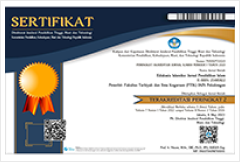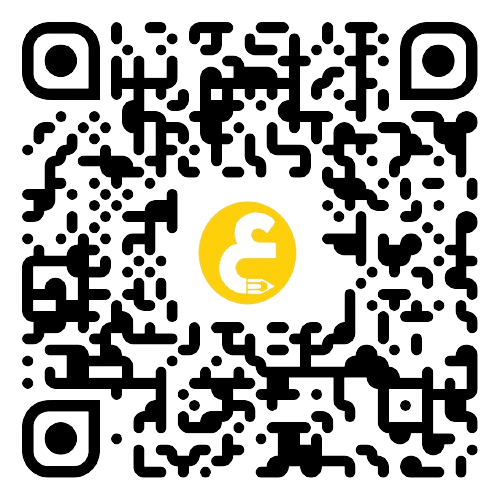Waqf-Based Pesantren's Strategy In Developing of Human Capital and Entrepreneurship Education
DOI:
https://doi.org/10.28918/jei.v4i2.2295Keywords:
Waqf-based pesantren, community-based education, human capital, entrepreneurship educationAbstract
This study aims to study the management of waqf-based Pesantren's strategy namely Pondok Modern Darussalam DarussalamGontor (PMDG) in developing human capital and entrepreneurship education for educational independence, as for this research related to the management of waqf. This research using qualitative descriptive methods and data obtained through triangulation techniques. As a result, waqf-based pesantren strategies in developing educational independence through community-based education (Kiai, teachers, santri, and society) make the harmony of pesantrenlife with all its totality a medium of learning and education combined with a culture of values ​​and philosophy, leadership and strengthening of modern systems management to product people who embedded 3 intelligences; iman (in faith), ilmu (in knowledge), and amal (in deed) those are supported by the management and development of waqf as an instrument for developing human capital and entrepreneurial education. The implication of this research is to make the management of waqf in waqf-based educational institutions as an instrument to develop and improve the accountability of waqf management to stakeholders.
References
Abdullah, M. F. (2012). The role of Islam in human capital development : a juristic analysis. Humanomics, 28(1), 64–75. https://doi.org/10.1108/08288661211200997
Adams, W., Djamil, F., Hasan, T., & Usman, H. (2011). Jurnal Wakaf dan Ekonomi Islam Badan Wakaf Indonesia. Al-Awqaf, IV, No 4(January), 118.
Ahmad, S. Z. (2013). The need for inclusion of entrepreneurship education in Malaysia lower and higher learning institutions. Education and Training, 55(2), 191–203. https://doi.org/10.1108/00400911311304823
Al-Anshari, I. M. ibnu M. J. M. ibnu M. (1999). Lisan al-Arab. Dar Ehia al-Tourath al-Arabi.
Alamsyah, I. E. (2019). Karut Marut Pendidikan Sistem Zonasi. Retrieved July 15, 2019, from Republika.co.id website: https://www.republika.co.id/berita/retizen/surat-pembaca/19/07/11/puh9q8349-karut-marut-pendidikan-sistem-zonasi
Arjmand, R. (2017). Waqf and Financing Islamic Education. In H. Daun & R. Arjmand (Eds.), Handbook of Islamic Education (pp. 1–13). https://doi.org/10.1007/978-3-319-53620-0_5-1
Arshad, R., Noor, A. H. M., & Yahya, A. (2015). Human Capital and Islamic-Based Social Impact Model: Small Enterprise Perspective. Procedia Economics and Finance, 31(15), 510–519. https://doi.org/10.1016/s2212-5671(15)01195-8
Asrohah, H. (2011). The dynamics of pesantren: Responses toward modernity and mechanism in organizing transformation. Journal of Indonesian Islam, 5(1), 66–90. https://doi.org/10.15642/JIIS.2011.5.1.66-90
Baron, A., & Armstrong, M. (2007). Human capital management : achieving added value through people. London and Philadelphia: Kogan Page Limited.
Becker, G. S. (1993). Human Capital: A Theoretical and Empirical Analysis, with Special Reference to Education (3rd ed.). Chicago, United States of America: The University of Chicago Press.
Belwal, R., Al Balushi, H., & Belwal, S. (2015). Students’ perception of entrepreneurship and enterprise education in Oman. Education and Training, 57(8–9), 924–947. https://doi.org/10.1108/ET-12-2014-0149
Bustamam, U. S. A., Mutalib, M. A., & Yusof, S. N. M. (2015). Graduate Employability through Entrepreneurship: A Case Study at USIM. Procedia - Social and Behavioral Sciences, 211(September), 1117–1121. https://doi.org/10.1016/j.sbspro.2015.11.149
BWI. (2009). Menggagas Nazhir Wakaf Profesional. Retrieved March 3, 2018, from Badan Wakaf Indonesia website: https://bwi.or.id/index.php/ar/publikasi/artikel/538-menggagas-nazhir-wakaf-profesional-.html
Chen, C. C., Greene, P. G., & Crick, A. (1998). Does entrepreneurial self-efficacy distinguish entrepreneurs from managers? Journal of Business Venturing, 13(4), 295–316. https://doi.org/10.1016/S0883-9026(97)00029-3
CNN Indonesia. (2019). Mimpi Muluk Pendidikan Setara Lewat Sistem Zonasi. Retrieved July 15, 2019, from CNN Indonesia website: https://www.cnnindonesia.com/nasional/20190625165033-20-406353/mimpi-muluk-pendidikan-setara-lewat-sistem-zonasi
Darussalam Press. (1438). Warta Dunia Pondok Modern Darussalam Gontor (No. 70). Ponorogo.
DEKS- Bank Indonesia, Muljawan, D., Sukmana, R., & Yumanita, D. (2016). Wakaf: Pengaturan dan tata kelola yang efektif (1st ed.). Jakarta: Departemen Ekonomi dan Keuangan Syariah- Bank Indonesia.
Direktorat Pendidikan Keagamaan dan pendidikan Pondok Pesantren. (2003). Dinamika Pondok Pesantren di Indonesia. Direkrotar Jenderal Kelembagaan Agama Islam.
Dobija, M. (2002). How to Place Human Resources into the Balance Sheet ? Journal of Human Resource Costing & Accounting, 3(1), 83–92. https://doi.org/10.1108/eb029044
Faj, A. (2011). Manjemen Pendidikan Pesantren dalam Prespektif Dr. KH Abdullah Syukri Zarkasyi, M.A. Jurnal Ta’dib, 6(2).
Farazmand, A. (2007). Strategic Public Personnel Administration: Building and Managing Human Capital for the 21st Century (A. Farazmand, Ed.). Westport, Connecticut, London: Praeger Publishers.
Fasa, M. I., Rofiqo, A., & Oktarina, A. (2016). Model Pengembangan Wakaf Produktif Pondok Modern Darussalam Gontor Ponorogo. Al-Awqaf: Jurnal Wakaf Dan Ekonomi Islam, 9(2, Juli).
Fayolle, A., Åmo, B. W., Anderson, R., Boissin, J.-P., Bouchard, V., Brand, M., … Wuttunee, W. (2007). A Handbook Of Research in Entrepreneurship Education, Contextual Perspectives. In A. Fayolle (Ed.), Handbook of Research in Entrepreneurship Education, Volume 2: Contextual Perspectives (Vol. 2). Edward Elgar, Cheltenham.
Fleming, P. (1996). Entrepreneurship Education in Ireland: a Longitudinal Study. Academy of Entrepreneurship Journal, 2(1), 94–132.
Gibb, A. (1999). Can We Build “Effective†Entrepreneurship through Management Development? Journal of General Management, 24(4), 1–21. https://doi.org/10.1177/030630709902400401
Hambali. (2017). Globalisasi Dan Pendidikan Pesantren. At-Ta’lim : Media Informasi Pendidikan Islam, 13(2), 213–234.
Hasanah, U., & Fahruroji. (2013). Wakaf dan pendidikan di Pondok Modern Darussalam Gontor. Al-Awqaf: Jurnal Wakaf Dan Ekonomi Islam, 6(1).
Hudaefi, F. A., & Heryani, N. (2019). The practice of local economic development and MaqÄá¹£id al-Sharī‘ah: Evidence from a Pesantren in West Java, Indonesia. International Journal of Islamic and Middle Eastern Finance and Management. https://doi.org/10.1108/IMEFM-08-2018-0279
Ibrahim, S., Almu’in, N., Amin, M. S., Qodir, A., Nafis, M. C., Zamhari, A., … Jahar, A. S. (2011). Jurnal Wakaf dan Ekonomi Islam Badan Wakaf Indonesia. Al-Awqaf: Jurnal Wakaf Dan Ekonomi Islam, 4(2).
Igwe, P. A., Okolie, U. C., & Nwokoro, C. V. (2019). Towards a responsible entrepreneurship education and the future of the workforce. International Journal of Management Education, (January), 0–1. https://doi.org/10.1016/j.ijme.2019.05.001
Ilyas, M. (2017). Profesional Nazhir Wakaf dalam Pemberdayaan Ekonomi Wakaf. Al-Qada’u, 4(45), 71–94.
Iman, N. (2012). Wakaf dan kemandirian Pendidikan (Studi pengelolaan wakaf di Pondok modern Darussalam Gontor Ponorogo), PhD Thesis. IAIN Walisongo, Semarang.
Imari, I., & Syamsuri. (2017). Pemberdayaan Waqf Produktif sebagai Media Pembangunan Ekonomi Pesantren: Satu Analisa Mekanisme Pelaksanaanya di Pesantren Wali Songo Ngabar. Islamic Economics Journa, 3(1), 1–33.
Izfanna, D., & Hisyam, N. A. (2012). A comprehensive approach in developing akhlaq: A case study on the implementation of character education at Pondok Pesantren Darunnajah. Multicultural Education and Technology Journal, 6(2), 77–86. https://doi.org/10.1108/17504971211236254
Kahar, S., Barus, M. I., Wijaya, C., Ilmu, T., Babussalam, T., Agama, T., … Sumatera, N. (2019). Peran Pesantren dalam Membentuk Karakter Santri. ANTHROPOS : Jurnal Antropologi Sosial Dan Budaya, 4(2), 170–178. https://doi.org/10.24114/antro.v4i2.11949
Karimi, S., Chizari, M., Biemans, H. J. A., & Mulder, M. (2010). Entrepreneurship education in iranian higher education: The current state and challenges. European Journal of Scientific Research, 48(1), 35–50.
Kemendikbud RI. (2018). Kemendikbud: Sistem Zonasi Mempercepat Pemerataan di Sektor Pendidikan. Retrieved July 15, 2019, from Kementerian Pendidikan dan Kebudayaan, Republik Indonesia website: https://www.kemdikbud.go.id/main/blog/2018/06/kemendikbud-sistem-zonasi-mempercepat-pemerataan-di-sektor-pendidikan
Kuratko, D. F. (2005). The emergence of entrepreneruship education - Luratko, 2005. Sage Publication Journal, 29(5), 577–597. https://doi.org/10.1111/j.1540-6520.2005.00099.x
Lin, S.-C., & Huang, Y.-M. (2013). The role of social capital in the relationship between human capital and career mobility Moderator or mediator ? Journal of Intellectual Capital, 6(2), 191–205. https://doi.org/10.1108/14691930510592799
Masqon, D. (2011). Dynamic of Pondok Pesantren As Indegenous Islamic Education Centre in Indonesia. TSAQAFAH, 7(1).
Masruchin, M. (2014). Wakaf Produktif dan kemandirian pesantren: Studi tentang wakaf Produktif di Pondok Modern Darussalam Gontor (abstrak). UIN Sunan Ampel Surabaya.
Masruchin, M. (2015). Wakaf Produktif dan kemandirian pesantren: Studi tentang wakaf Produktif di Pondok Modern Darussalam Gontor. UIN Sunan Ampel Surabaya.
Minbaeva, D. B., & Shell, R. D. (2017). Building credible human capital analytics for organizational competitive advantage. Hum Resour Manage, Wiley HR Science Forum, 1–13. https://doi.org/10.1002/hrm.21848
Mubarok, I. (2016). Alumni Gontor kini telah dirikan 350 pesantren. Retrieved January 20, 2019, from merdeka.com website: https://www.merdeka.com/peristiwa/alumi-gontor-kini-telah-dirikan-350-pesantren.html
Muhakamurrohman, A. (2014). Pesantren: Santri, Kiai, Dan Tradisi. IBDA` : Jurnal Kajian Islam Dan Budaya, 12(2), 109–118. https://doi.org/10.24090/ibda.v12i2.440
Premand, P., Brodmann, S., Almeida, R., Grun, R., & Barouni, M. (2016). Entrepreneurship Education and Entry into Self-Employment Among University Graduates. World Development, 77, 311–327. https://doi.org/10.1016/j.worlddev.2015.08.028
Ridwan, M. (2012). Nazhir Profesional Kunci Kesuksesan Wakaf Produktif. Muqtasid: Jurnal Ekonomi Dan Perbankan Syariah, 3(1), 91. https://doi.org/10.18326/muqtasid.v3i1.91-109
Ritonga, A. H., Jamil, M., Harvius, & Mukhlisin, A. (2018). Manajemen Sumber Daya Manusia Berbasis Pendidikan Pondok Pesantren. Jurnal Penelitian, 12(2), 427–450.
Rohmaningtyas, N. (2016). Pengumpulan dan pengembangan wakaf berbasis pesantren: studi kasus di Pondok Modern Darussalam Gontor dan Pondok Modern Tazakka Batang, Magister Thesis. Universitas Airlangga Surabaya.
Rönkkö, M.-L., & Lepistö, J. (2015). Finnish student teachers’ critical conceptions of entrepreneurship education. Journal of Enterprising Communities: People and Places in the Global Economy, 9(1), 61–75. https://doi.org/10.1108/JEC-03-2013-0003
Sadr, S. K. (2015). The role of human capital in economic development of the earliest islamic period. International Journal of Islamic and Middle Eastern Finance and Management, 8(4). https://doi.org/10.1108/IMEFM-12-2014-0122
Shȃlih, M. ibn A. ibnu S. as-. (2001). Al-Waqfu Fî As-Syarî’ati Al-Islȃmiyyati wa Atsaruhu fî Tanmiyati Al-mujtma’. Riyadh: Maktabah al-Malik Fahd.
Shane, S., Locke, E. A., & Collins, C. J. (2003). Entrepreneurial motivation. Human Resource Management Review, 13(2), 257–279. https://doi.org/10.1016/S1053-4822(03)00017-2
Shorî, U. S. (2011). Al-Waqfu Al-Islamî bayna an-Nazhariyyah wa at-Tathbîq. Ardan: Dȃr an-Nafȃis.
Siahaan, D., Iswati, S., & Zarkasyi, A. F. (2019). Social Enterprise : The Alternatives Financial Support For Educational Institusion. International Journal of Economics and Financial Issues, 9(3), 1–11. https://doi.org/10.32479/ijefi.7626
Syamsuri. (2016). Peranan Pesantren Dalam Pembangunan Ekonomi Masyarakat di Jawa Timur Indonesia, PhD Thesis. University of Malaya, Kuala Lumpur.
Syamsuri, & Borhan, J. T. B. (2016). Eksistensi dan Kontribusi Pondok Modern Darussalam Gontor Dalam Pembangunan Sumber Daya Manusia. Jurnal At-Ta’dib, 11(2), 201–226.
Uhbiyati, N. (2015). A competency-based model of the human resource development management of ustadz at salaf boarding school. International Journal of Educational Management, 29(5), 695–708. https://doi.org/10.1108/IJEM-08-2014-0118
Welsh, D. H. B., Tullar, W. L., & Nemati, H. (2016). Entrepreneurship education: Process, method, or both? Journal of Innovation & Knowledge, 1(3), 125–132. https://doi.org/10.1016/j.jik.2016.01.005
White, L. N., & Carolina, N. (2007). A kaleidoscope of possibilities : strategies for assessing human capital in libraries. The Bottom Line, 20(3), 109–115. https://doi.org/10.1108/08880450710825815
Zarkasyi, A. S. (2005a). Gontor & Pembaharuan Pendidikan Pesantren. Jakarta: Raja Grafindo Persada.
Zarkasyi, A. S. (2005). Manajemen Pesantren: Pengalaman Pondok Modern Gontor (2nd ed.). Ponorogo: Trimurti Press






















